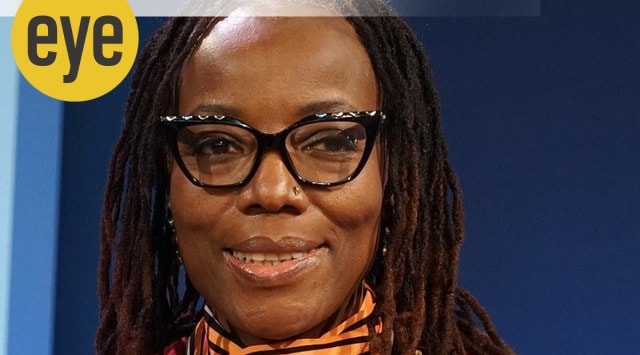Booker-shortlisted Zimbabwean author Tsitsi Dangarembga acquitted in a case against her for inciting violence
The 64-year-old author's alleged offence was carrying a placard asking for institutional reforms
 Tsitsi's literary career began with an acclaimed short story, The Letter (1985), about a widow in Apartheid-era South Africa (Source: Wikimedia Commons)
Tsitsi's literary career began with an acclaimed short story, The Letter (1985), about a widow in Apartheid-era South Africa (Source: Wikimedia Commons) In a win for the Booker 2020-shortlisted Zimbabwean author, Tsitsi Dangarembga, 64, has been acquitted in a case against her for inciting violence against the country’s ruling party, Zanu-PF, with a higher court overturning her sentence.
Dangarembga, whose This Mournable Body (2018) – the final instalment in a trilogy about a young girl, Tambudzai, growing up in postcolonial Zimbabwe – made it to the Booker shortlist, has been a long-time critic of Zanu-PF. In September, she called her conviction “a miscarriage of justice” and was supported by Amnesty International. Her alleged offence was carrying a placard that said, “We want better. Reform our institutions.”
Dangarembga was born and grew up in Zimbabwe (then Rhodesia), before moving to England to study medicine and returning to Zimbabwe after long experiences of racism. Moonlighting as an ad copywriter, she studied medicine at the University of Zimbabwe and wrote plays for the university drama club because, she reportedly said to critic Jane Wilkinson, “there were simply no plays with roles for black women… The writers in Zimbabwe were basically men.”
Her literary career began with an acclaimed short story, The Letter (1985), about a widow in Apartheid-era South Africa. Her first novel was written the same year and rejected by four Zimbabwean publishers, leading her to pitch it to a British feminist publisher that accepted. With the publication of Nervous Conditions (1988), the beginning of Tambudzai’s trilogy, she became the first black woman from Zimbabwe to write a novel in English. It also won the Commonwealth Writers’ Prize from the African region in 1989.
Dangarembga went on to study film in Berlin and produced many movies in Zimbabwe, including the award-winning Shona film Kare Kare Zvako (1989; English title, Mother’s Day) — about a woman who must fight her husband for food in a drought-struck land. In 1992, she founded a production house, Nyerai Films, in Zimbabwe’s capital, Harare, and continued making films that explored racial prejudice and decolonisation.
She became the first black Zimbabwean woman to direct a feature film with Everyone’s Child (1996), a story about two siblings orphaned by AIDS, and co-wrote the highest-grossing Zimbabwean movie, Neria (1991), about a Harare-based widow who must fend off her dead husband’s brother attempting to steal her inheritance. With The Book of Not (2006), the sequel to Nervous Children, Dang returned to prose after a long gap to tell the story of Tambudzai’s education in a convent boarding school.
Dang has also been involved in feminist activism for years, and became the education secretary of a left-leaning Zimbabwean political party in 2010, and founded the Institute of Creative Arts for Progress in Africa Trust.
Photos




- 01
- 02
- 03
- 04
- 05


























